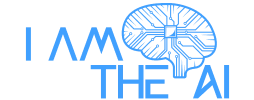College fashions are, for essentially the most half, outdated–and really overdue for alternative. When college students attain highschool, analysis reveals that near 66 % of scholars are disengaged. However even college students who do efficiently navigate their education emerge with solely a particular (and sometimes slim) skillset which will or might not match their strengths or pursuits.
Standard education typically leaves college students disillusioned, questioning their intelligence and worth as it’s framed by a system that wants an overhaul.
Learner-centered training can play a crucial position in reshaping training techniques, providing a extra holistic strategy to assembly learners’ wants and serving to college students discover achievement of their educational accomplishments.
Ok-12 Worth Networks: The Hidden Forces That Assist or Hinder Learner-Centered Training, a brand new report from the Clayton Christensen Institute and authored by CCI senior analysis fellow Thomas Arnett, affords perception into understanding why faculties wrestle to alter their educational fashions, together with tricks to set up and assist learner-centered training fashions.
Program leaders, sponsors, learners and their households, workers, group companions, and funders are all crucial to the success of those learner-centered training fashions.
The report describes how 5 totally different learner-centered training fashions–The Met, Digital Studying Academy Constitution College, Iowa BIG, Village Excessive College, and Embark Training–had been in a position to launch and develop their fashions by assembling worth networks congruent with their imaginative and prescient for learner-centered training.
1. The Met: The Metropolitan Regional Profession and Technical Middle, often known as The Met, is a community of six small, public excessive faculties positioned in Windfall and Newport, Rhode Island. The hallmark of The Met’s learner-centered mannequin is that its learners exit of their communities for 2 days out of the week to guide real-world tasks as interns for associate organizations. For instance, learners would possibly work with a neighborhood bakery, a legislation agency, a tech firm, or a recording studio.
When learners be a part of the Met, they and their households work with an advisor to establish their strengths, wants, and pursuits, after which develop an individualized studying plan with an internship as its centerpiece. Learners are answerable for researching potential internship alternatives and speaking with associate websites to rearrange their internships. Advisors coach them as they do their analysis and outreach to make sure that internships match their wants and pursuits.
2. Digital Studying Academy Constitution College: The Digital Studying Academy Constitution College (VLACS) is a statewide digital faculty created in 2007 that serves Ok–12 learners all through New Hampshire. The idea for the varsity got here from the superintendent of the Exeter Area Cooperative College District, who noticed a possibility to reap the benefits of a brand new constitution faculty legislation to use for a statewide constitution. Somewhat than create one other standard faculty, nonetheless, the superintendent acknowledged the distinctive worth of utilizing a digital faculty mannequin to supply a wide selection of versatile, part-time and full-time studying choices unavailable by brick-and-mortar campuses.
VLACS’s competency-based mannequin is very adaptable to learners’ wants and pursuits. It affords a variety of choices for learners to earn credit: by on-line programs, learner-designed tasks, and out-of-school studying experiences akin to internships and journey. Learners who take on-line programs transfer by these programs at their very own tempo and earn credit score at any time when they’re in a position to show mastery of designated competencies. For tasks and different studying experiences, VLACS aligns these experiences with state studying requirements after which measures learners’ mastery of requirements utilizing performance-based assessments.
Associated:
What knowledge tells us about student-centered studying
5 methods peer networks result in higher scholar assist techniques

